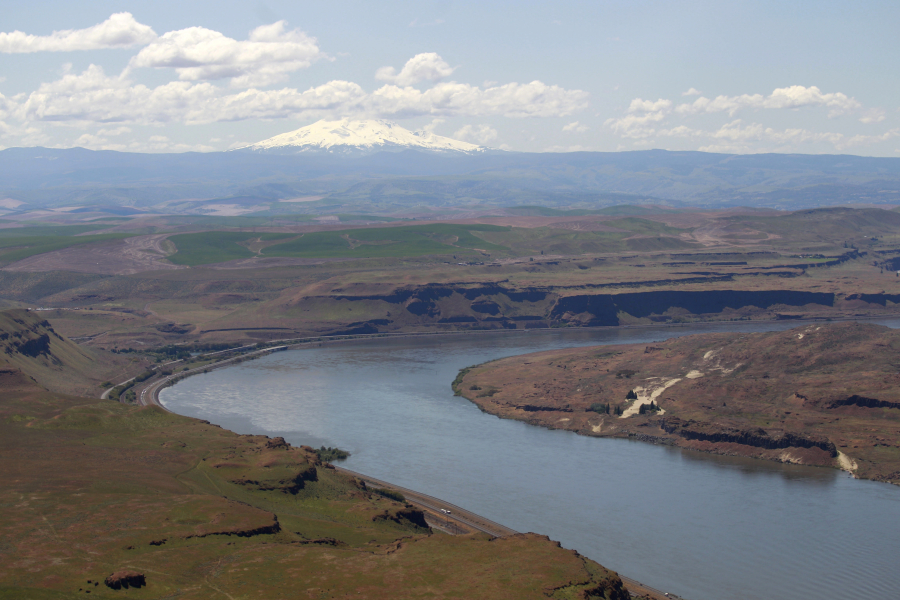KENNEWICK — Northwest utilities are spoiling for a fight with Canada over an aspect of the Columbia River Treaty that sends power generated in the U.S. to British Columbia.
As the U.S. and Canada negotiate an update to the 1964 river management agreement, utilities say the so-called Canadian Entitlement is out of balance and deprives the U.S. of energy the Northwest needs to meet climate goals.
Readjusting it should be “Job #1.”
Negotiations intensified this spring, with both the U.S. and Canada agreeing the health of the Columbia must be a priority along with the two pillars of the original agreement — flood control and generating electricity.
The U.S. hosted the 18th round of negotiations Aug. 10-11 in Seattle. The American-led team submitted a proposal to Canada and expects a response by late September, Jill Smail, the state department’s Columbia River Treaty negotiator, said during a listening session last week.
The session gave utilities, environmental groups and other stakeholders and opportunity to share their priorities for the updated treaty.
Flood control deadline looms
Reaching agreement is growing urgent as the treaty reaches its 60th year.
In 2024, either side can exit and requirements to manage floods become less defined, putting downstream communities at risk.
Negotiations cover a fraught mix of issues — flood control, fish passage, navigation, power generation, irrigation and the importance of bringing tribes and first nations into meaningful roles managing one of the most important waterways in North America.
The entitlement took center stage during the recent session, which included the entire U.S. negotiating team.
The Canadian Entitlement compensates Canada for constructing the Duncan, Arrow and Mica dams north of the border and allowing the Libby dam on the U.S. side by giving it 50% of the resulting power generated at hydroelectric dams on the U.S. stretch of the 1,200-mile river.
The power is currently valued at about $300 million after rising from $150 million just five years ago, according to utility industry figures.
Sticking point
The sticking point from the American side: Canada sells it back to the U.S. through Powerex Corp., a subsidiary of the BC Hydro electric utility, at a profit.
The U.S. pays premium prices to purchase the entitlement power during peak heating and cooling seasons.
Scott Simms, CEO and executive director of the Public Power Council in Portland, explains that the 1960s-era formula estimates Canada’s share of power benefits at rate an that “far exceeds” the value of coordinating power operations between the two countries.
Readjusting the entitlement has been an industry priority for a decade, he told the Tri-City Herald.
“In terms of how hard we want the state department to push this issue with their Canadian counterparts — we have been telling them for a decade to make it job #1,” he said.
Job #2 is ensuring flood control operations are addressed by the 2024 deadline and that costs are born by taxpayers, not ratepayers, consistent with flood control elsewhere in the U.S.
Simms’ organization represents dozens of public utilities, including the Benton and Franklin public utility districts, Richland Energy Services and Benton Rural Electric Cooperative.
Giving away ‘too much’
Ryan Redmond, CEO of Benton REA, the Prosser-based cooperative with 11,000 customers in areas of Benton, Yakima and Lewis counties, told the treaty negotiators the entitlement is out of balance. Power from the Columbia should be available to domestic customers.
“Modernization of this treaty is long since overdue. The benefits are all on the terms of the Canadians at the expense of ratepayers and this needs to be addressed,” he said.
The entitlement gives “too much” away, said Zabyn Towner, chief executive officer of Northwest Requirements Utilities, a trade association of 57 mostly rural utilities in seven states, including Washington, Idaho and Oregon.
Towner said the Northwest needs the power to serve a growing population and to meet carbon-reduction goals of Washington, Oregon and other states. That rests, in part, on embracing electric vehicles that are plugged in rather than gassed up.
“It’s only fair that more of it stays in the U.S.,” he said.
Rachael Osborn, a retired water lawyer living on Vashon Island, speculated the Canadians must be astonished that Northwest utilities object to the entitlement. The Northwest boasts the lowest power rates in the U.S.
“It must be one of the reasons for the holdup,” she mused during the listening session hosted by the state department. The entitlement is of less concern to those who want the treaty updated to put the ecosystem on the same regulatory footing as flood control and power generation, she said.
First Nations agreement
In June, British Columbia agreed to provide 5% of revenue from the Canadian Entitlement to the Ktunaxa, Secwepmc and Syilx Okanagan Nations. Representatives of the three nations served as representatives on the Canadian negotiating team during the most recent session in Seattle.
The B.C. government describes the entitlement power as “Canada’s share.”
It notes 270,000 acres on its side of the border were flooded by dams and reservoirs mandated by the original treaty. More than 2,000 residents as well as indigenous people were displaced.



